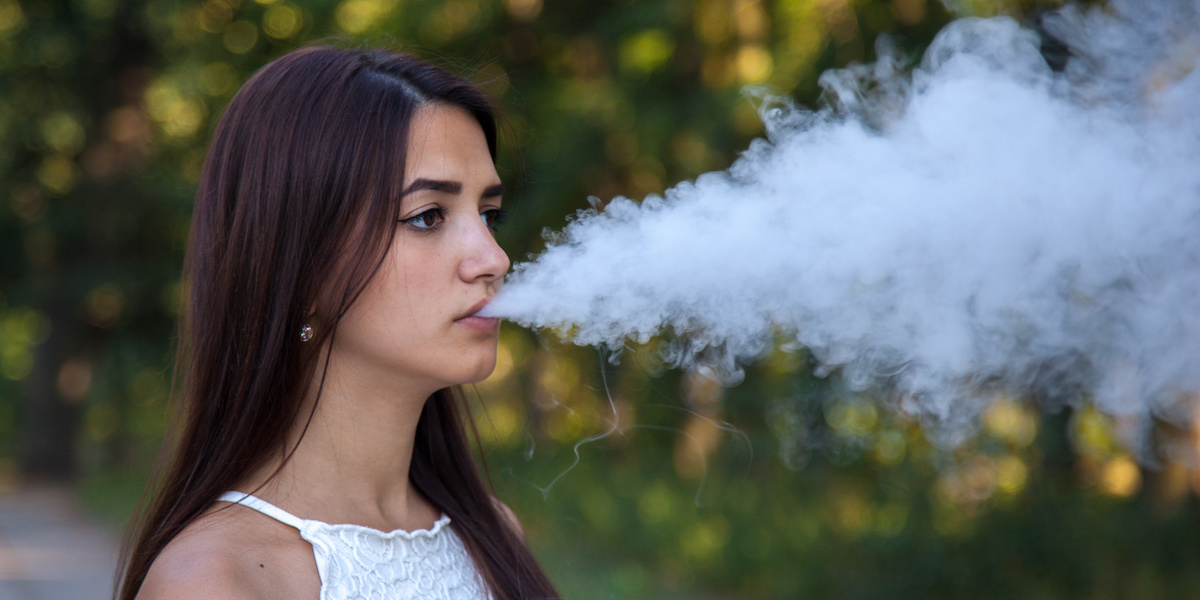
*The following is excerpted from an online article posted on EurekAlert!.
Most parents know or suspect when their child smokes, but they are much more likely to be in the dark if the child vapes or uses other tobacco products, according to a large national study by researchers at UC San Francisco.
The study, which tracked more than 23,000 participants aged 12 to 17 years old, found that parents or guardians were substantially less likely to report knowing or suspecting that their child had used tobacco if the child used only e-cigarettes, non-cigarette combustible products or smokeless tobacco, compared to smoking cigarettes or using multiple tobacco products.
The researchers also found that when parents set strong household rules about not using tobacco – applying to all residents – their children were less likely to start tobacco use. Just talking to kids about not smoking was far less effective. The study was published in the journal Pediatrics.
“We know that tobacco-free homes are a key tool to help prevent smoking by kids,” said corresponding and senior author Benjamin Chaffee, DDS, MPH, Ph.D., an associate professor at the UCSF School of Dentistry. “What studies haven’t examined is how tobacco-free homes stack up against other approaches and how much tobacco-free home rules might help with other tobacco products beyond smoking.
Over the last decade, the smoking landscape has dramatically changed, especially among youth, for whom cigarette smoking has declined while the use of electronic cigarettes soared. Last year, the Centers for Disease Control and Prevention reported that more than 1 in 4 high school students was vaping.
The new study used data from the Population Assessment of Tobacco and Health (PATH) Study to investigate parental awareness of youth tobacco use and the role of household tobacco rules in preventing smoking. In addition to cigarettes and e-cigarettes, the study looked at non-cigarette combustible products (including cigars, pipes, hookahs, and bidis), and smokeless tobacco (including snuff, chewing tobacco, snus, and dissolvable tobacco).
It found that parents were more likely to know or suspect that their child was using a tobacco or nicotine product if the child was older, male, identified as white, and lived with a tobacco user, as well as if the parents were less educated. Mothers were singled out as more aware than fathers.
The researchers also found that teens and tweens living in homes with the strictest rules prohibiting tobacco use were 20-26 percent less likely to start using tobacco, compared to youth living in the most permissive homes.
Source: EurekAlert!
https://www.eurekalert.org/pub_releases/2020-10/uoc–pla100220.php

 Nicotine Pouch Use Rising Among Teens, Public Health Expert Sounds Alarm
Nicotine Pouch Use Rising Among Teens, Public Health Expert Sounds Alarm  Synthetic Storm: What’s Really in Your Teen’s Vape — and Why Scientists Are Alarmed
Synthetic Storm: What’s Really in Your Teen’s Vape — and Why Scientists Are Alarmed  Colorful, ‘Healthy’ Branding Makes Cannabis Edibles ‘Appealing’ to Teens
Colorful, ‘Healthy’ Branding Makes Cannabis Edibles ‘Appealing’ to Teens